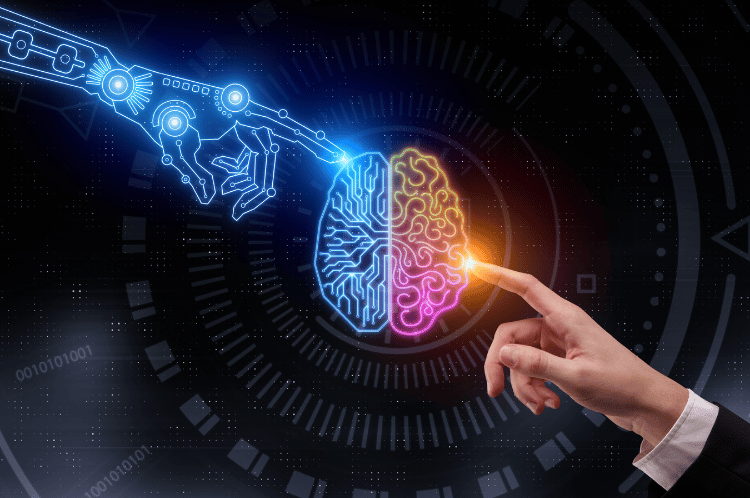Generative AI is rapidly transforming a multitude of industries, reshaping how businesses operate, innovate, and interact with customers. This advanced technology, which includes models capable of creating text, images, music, and even complex designs, is opening new avenues and efficiencies across sectors. Here’s an in-depth look at how generative AI is making an impact across various industries.
- Healthcare
- Drug Discovery and Development
Generative AI is revolutionizing drug discovery by analyzing vast datasets to identify potential drug compounds. AI models can simulate how different molecules interact, speeding up the identification of promising candidates. This not only accelerates the drug development process but also reduces costs and improves the accuracy of predictions regarding a drug’s effectiveness and safety.
- Personalized Medicine
Generative AI is enhancing personalized medicine by analyzing genetic data to tailor treatments to individual patients. By generating models that predict how patients will respond to specific therapies, AI helps in designing personalized treatment plans that improve outcomes and minimize adverse effects.
- Medical Imaging
In medical imaging, generative AI assists in creating detailed and accurate images from lower-quality scans. It enhances image resolution and highlights abnormalities that might be missed by human eyes, leading to better diagnosis and treatment planning.
- Finance
- Fraud Detection
Generative AI is employed in fraud detection by generating synthetic data to simulate various fraud scenarios. This helps in training detection systems to identify and mitigate fraudulent activities more effectively. AI models continuously learn from new patterns of fraud, improving their ability to spot suspicious transactions in real-time.
- Algorithmic Trading
In the realm of algorithmic trading, generative AI can create and test complex trading strategies by simulating market conditions. This allows traders to optimize their strategies and make data-driven decisions based on sophisticated models that account for various market dynamics.
- Customer Service
Generative AI enhances customer service in the finance sector by powering chatbots and virtual assistants. These AI-driven tools handle routine inquiries, provide financial advice, and perform transactions, improving customer satisfaction and reducing the burden on human agents.
- Entertainment and Media
- Content Creation
Generative AI is revolutionizing content creation by automating the production of articles, scripts, and even music. AI tools can generate written content based on specific themes or keywords, assist in scriptwriting, and compose original music, significantly speeding up the creative process.
- Personalization
In entertainment platforms, generative AI enhances user experience by personalizing content recommendations. By analyzing viewing patterns and preferences, AI algorithms create tailored content suggestions, keeping users engaged and increasing satisfaction.
- Visual Effects
Generative AI is transforming the visual effects industry by generating realistic CGI elements and special effects. This technology enables filmmakers to create stunning visuals with greater efficiency and at lower costs, pushing the boundaries of creative possibilities.
- Retail
- Product Design
Generative AI aids in product design by generating innovative designs based on market trends and consumer preferences. AI models can analyze design patterns and create new concepts that align with current fashion trends, leading to more appealing and relevant products.
- Inventory Management
In inventory management, generative AI optimizes stock levels and predicts demand by analyzing sales data and market trends. This helps retailers maintain optimal inventory levels, reduce waste, and improve supply chain efficiency.
- Customer Experience
Generative AI enhances customer experience through personalized shopping recommendations and virtual try-ons. AI-driven systems analyze customer preferences and browsing history to suggest products that align with individual tastes, making shopping more enjoyable and efficient.
- Education
- Personalized Learning
Generative AI personalizes learning experiences by creating customized educational content based on student performance and preferences. AI tutors provide tailored lessons and feedback, adapting to individual learning styles and needs, which enhances the overall educational experience.
- Content Generation
In education, generative AI assists in creating teaching materials, such as quizzes, assignments, and instructional videos. This automation helps educators save time and ensures that content is up-to-date and relevant to current curricula.
- Language Translation
Generative AI improves language translation services, enabling real-time translation of educational materials and facilitating communication between students and teachers from different linguistic backgrounds. This promotes inclusivity and broadens access to education.
- Manufacturing
- Design Optimization
Generative AI is used to optimize product designs by simulating and analyzing various design parameters. AI models generate innovative design solutions that enhance performance and reduce production costs, leading to more efficient and effective manufacturing processes.
- Predictive Maintenance
In manufacturing, generative AI predicts equipment failures by analyzing data from sensors and machinery. This proactive approach to maintenance helps prevent downtime, extend equipment lifespan, and reduce repair costs.
- Supply Chain Management
Generative AI improves supply chain management by optimizing logistics, forecasting demand, and managing inventory levels. AI-driven systems analyze historical data and market trends to enhance supply chain efficiency and reduce operational costs.
- Transportation and Logistics
- Autonomous Vehicles
Generative AI plays a crucial role in the development of autonomous vehicles by generating simulation data to train self-driving algorithms. AI models help in improving the safety and reliability of autonomous driving systems by simulating various driving conditions and scenarios.
- Route Optimization
In logistics, generative AI optimizes delivery routes by analyzing traffic patterns, weather conditions, and other factors. This results in more efficient routing, reduced fuel consumption, and faster delivery times.
- Demand Forecasting
Generative AI assists in demand forecasting by analyzing historical sales data and market trends. Accurate demand predictions enable logistics companies to plan better, manage inventory effectively, and meet customer expectations.
Conclusion
Generative AI is reshaping industries by introducing new capabilities, improving efficiency, and enhancing creativity. Its impact is profound, offering innovative solutions and transforming traditional processes across various sectors. As technology continues to evolve, the potential applications of generative AI will likely expand, driving further advancements and unlocking new opportunities for businesses and consumers alike.




